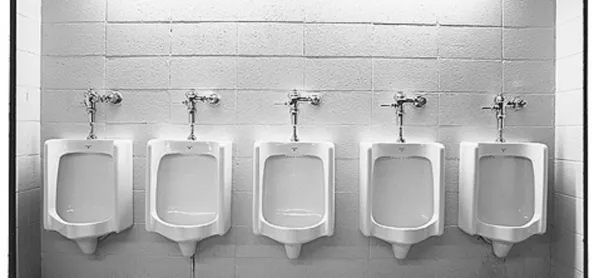- Home
- Education won’t advance if we don’t allow ourselves to entertain new possibilities
Education won’t advance if we don’t allow ourselves to entertain new possibilities

We recently published an article that precipitated what to us was a surprising response. Two of us (Kate and David) had spent several years researching the well-known gender gap in performance on physics diagnostic and achievement tests. We found the gap was caused by only a few topics, particularly projectile motion. Even among the best students, the gap persisted.
Why? Our suggestion was that one factor - among several - might be differences in the way boys and girls pee. We wrote about it because we wanted teachers to consider it as a real possibility and reflect on what implications this might have for teaching and learning of physics and more generally. We had a serious point, but hoped to amuse as well. We were genuinely taken aback by the reaction we got.
The story was picked up by all sorts of non-specialist publications. Most misrepresented our article and many clearly followed the secondary reporting alone. Within hours we had been labelled “controversial academics”. They said we were claiming that boys are better at physics than girls solely because (most) boys pee in projectile fashion. We didn’t say that. Even if we had, the reaction was surprisingly strong.
Physics under fire
Many people asked what qualified us to write our article - comments probably fuelled by the one newspaper’s decision to claim that we had been branded “frankly ridiculous” by “education experts”. This implied that we are not education experts ourselves, despite the fact we have around 50 years of experience of teaching physics in higher education between us, all three of us have physics PhDs, Kate is a qualified secondary school teacher and Anna has a second PhD in education.
There were openly misogynistic and vitriolic responses. We received hate mail calling us disgusting and disgraceful and there was a flood of comments on Twitter, some calling our work “the biggest load of horseshit ever” and others branding us paedophiles. Our work had made a splash, but one that didn’t seem to involve much thought, only knee-jerk reactions and a reluctance to engage with us in a discussion.
Slowly, though, over the next week, we began to be contacted by a trickle of journalists and others who were prepared to look at the evidence and consider our ideas. Which leads me back to the points we were actually making.
First and foremost, we were raising the real and as-yet unresolved problem of girls who are as bright and able as boys doing worse in physics tests and possibly being put off continuing with the subject because of that. We were highlighting the fact that this lower performance is limited to specific topics. Projectile motion is one of those topics. We suggested that material, physical experiences influence learning, possibly in surprising and unrecognised ways.
Musical analogy
A musician comes to understand their instrument and the music they play better through practice, often playing scales and arpeggios rather than full-scale, complex pieces. We were suggesting a similar kind of learning can help boys relate angle of “launch” to height and distance when they pee. These are important for the physics of projectile motion, as is the visible arc that shows the projectile moving in a parabola. These won’t in themselves mean that a boy who plays a bit with his aim and range will automatically get the formalised, mathematical version of projectile motion - but he will have a secure knowledge of the things he has experienced physically. This, in turn, might mean he is more able to move on from that and see the relationship with the mathematical treatment when he encounters it. Girls are also likely to have some knowledge of the same things, but inevitably will have had fewer “hours of practice” (to go back to the musician analogy) and so that physical, embodied knowledge will be less secure.
In short, boys are more likely than girls to be in a state that is primed for learning about the physics of projectile motion. This does not mean that they will all find it easy, or that all girls will find it hard. Just that daily, material experience of projectile motion is likely to confer an advantage in a topic commonly - but probably quite unnecessarily - given prominence in physics curricula and tests. Shuffling projectile motion to a new point in the curriculum may help more female students succeed, yet cost boys nothing.
We wanted to write this follow-up because a similar response - a negative splash followed eventually by a more positive trickle - is likely to be received by anyone willing to stick their neck out. And we want to encourage others. Education won’t advance if we don’t allow ourselves to entertain new possibilities. You may find yourself upset at the splash of misrepresentations and attacks, but if you start a trickle of conversation with even a small number of teachers, it’s worth it.
Anna Wilson is a researcher at Abertay University and an adjunct associate professor at the Australian National University. Kate Wilson is a senior lecturer in the School of Engineering and Information Technology and the Learning and Teaching Group at University of New South Wales Canberra. David Low is an honorary lecturer in the School of Physical, Environmental and Mathematical Sciences at University of New South Wales Canberra
Want to keep up with the latest education news and opinion? Follow Tes on Twitter and like Tes on Facebook
Keep reading for just £1 per month
You've reached your limit of free articles this month. Subscribe for £1 per month for three months and get:
- Unlimited access to all Tes magazine content
- Exclusive subscriber-only stories
- Award-winning email newsletters
